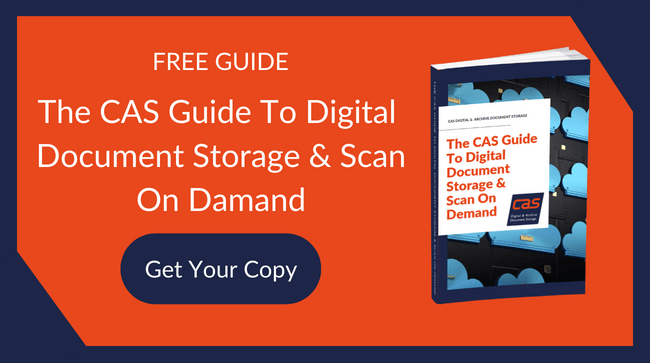All medical documents made in the United Kingdom eventually need to be permanently and irreversibly disposed of. Once a record reaches a certain age (dependant on the type and sensitivity), the information inside is no longer useful, or the patient reasonably requests it, you must destroy the file. Failure to do so risks fines and prosecution.

Bulk multi-layered document shredding is a great way to make sure your outdated patient data stays gone for good. However, there are a few more things to consider if you ever need to outsource record disposal.
Some third-party waste disposal and recycling companies don't have the right equipment, proper knowledge, or expertise to deal with medical record erasure. Others might not provide enough transparency, accountability, or legal compliance to be a suitable choice. It's also important to look into the general reputation of the company you're hiring. Security, cost-effectiveness, and reliability are all paramount.
Here's our seven-point guide to what you should seek from a document shredding company.
1) An Excellent Reputation
Can the company provide examples of past orders, ongoing client contracts, past positive reviews, and a portfolio of decent feedback? Do they have any prior experience shredding medical records in bulk?
2) Legal Understanding
The company shredding your records should clearly understand the GDPR (2018), the Data Protection Act, NHS and BMA ethical record disposal guidelines, record retention timescales, and service-patient confidentially. Even during the end-of-life phase, all medical records need to be secured, inaccessible, and accountable until finally shredded at the right point.
3) Good Standards Of Training
Similarly, your company should be able to demonstrate that the people shredding, moving, and storing your outdated records are fully trained in compliant disposal procedures. No-one handling sensitive data should have an outstanding criminal record, either, no matter the offence. In particular, look for those that can guarantee a BS7858 qualified specification check for all staff. BS7858 includes a DBS (Disclosure & Barring Service) audit as standard.
4) Secure Disposal And Custody Chains
How transparent is your document shredding company? How secure are the premises? Every step of the destruction chain should be secure and the business should be able to give feedback on where your documents are at all times.
5) Certificates Of Destruction
The company should issue you with a certificate for each block of records they dispose of for you. Dated Certificates of Destruction help you keep track of archived paperwork while providing a legally-binding receipt if someone ever questions you about the files.
6) Cross-Cutting Shredders
A heavy-duty, cross-cut mechanical shred ensures that sliced up documents stay unreadable and unrecoverable. Cross-cutting shredders help prevent fraud, accidental retrieval, and identity theft. For an added layer of protection, ask the company about post-shred pulped paper recycling or incineration.
7) ISO Accreditation
Look out for companies with ISO 9001, ISO 14001 and BS EN 15713 accreditations. These accreditations mean the company has proven excellent standards of managerial oversight, environmental friendliness, and secure destruction of confidential documents to independent auditors.
Secure Record Disposal With CAS Ltd.
If you need your old medical records disposed of securely, talk to CAS. As well as providing dedicated, off-site warehousing for archive collections, we also offer managed record retention schemes and end-of-life, confidential file shredding. Ask us about scheduled disposal to learn more.
Image source: Unsplash

